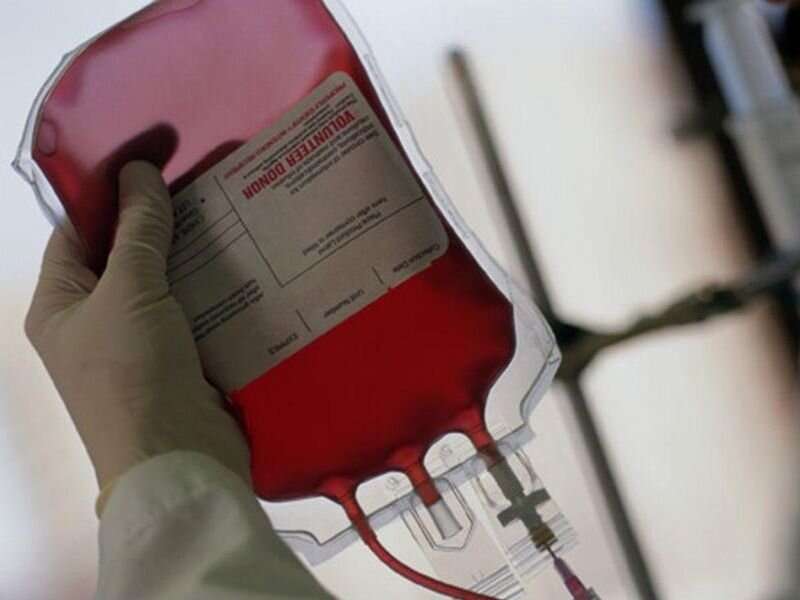Red Cross warns of severe blood shortage

(HealthDay)—There’s a severe blood shortage in the United States due to a recent surge in trauma cases, organ transplants and elective surgeries, the American Red Cross says.
The Red Cross is appealing to Americans to roll up their sleeves and donate blood immediately.
“Our teams are working around the clock to meet the extraordinary blood needs of hospitals and patients—distributing about 75,000 more blood products than expected over the past three months to meet demand—but we can’t do it without donors. Every two seconds, someone in the U.S. needs blood,” said Chris Hrouda, president of Red Cross Biomedical Services.
Red cell demand from hospitals with trauma centers is 10% higher than in 2019, which is five times higher than the growth in demand from other facilities that provide transfusions, according to a Red Cross news release.
Between 20% and 40% of trauma deaths that occur after hospital admission involve massive bleeding. In such cases, saving a life could require hundreds of blood products, depending on injury severity.
Hospitals’ need for blood is also on the rise as they deal with many patients who delayed care due to the COVID-19 pandemic.
“Some hospitals are being forced to slow the pace of elective surgeries until the blood supply stabilizes, delaying crucial patient care. As we return to pre-pandemic activities and resume travel to visit loved ones, we want people to remember the needs of patients this summer and the power so many of us have to help save lives,” Hrouda explained.
Type O is the blood type most urgently needed by hospitals because it’s the one most often used in transfusions, but the Red Cross said that all blood types are welcomed.
There is also an emergency need for platelets, the clotting portion of blood. Nearly half of all platelet donations are given to patients undergoing cancer treatments.
To schedule an appointment to give blood or platelets, use the Red Cross Blood Donor App, visit RedCrossBlood.org or call 1-800-RED CROSS (1-800-733-2767).
Source: Read Full Article
